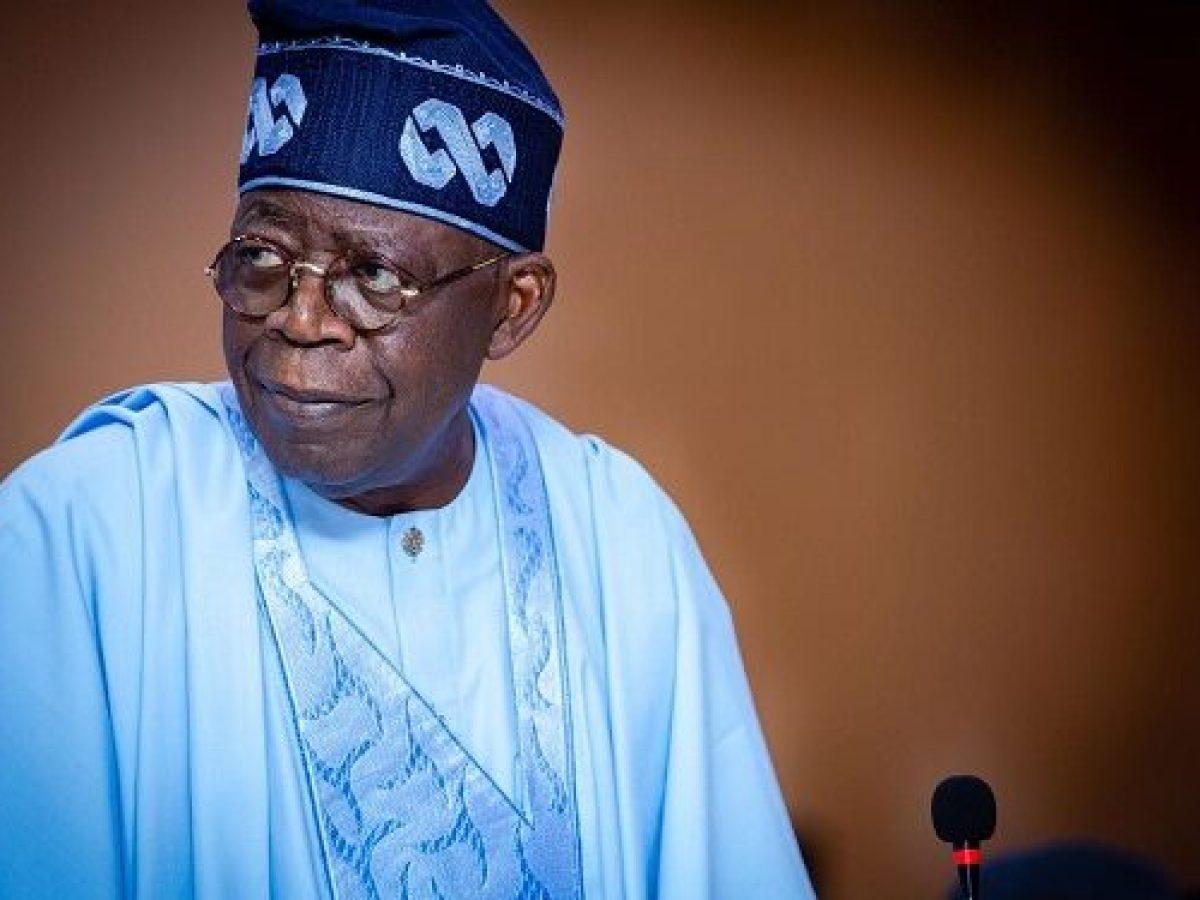Feature
Will Tinubu administration end fuel subsidy controversy?

Will Tinubu administration end fuel subsidy controversy?
By Emmanuella Anokam
No policy in Nigeria’s petroleum industry has generated more controversy than subsidy removal. Since the return to democracy in 1999, it has defied ministers and even the entire lifespan of administrations.
The argument is that the pump price of Premium Motor Spirit (PMS) commonly known as petrol is lower than international benchmarks.
Proponents of subsidy, therefore, say Federal Government has to take care of the excess through the subsidy policy.
Opponents of the policy disagree, insisting that it is a waste of public funds, a drain on the commonwealth. They want it stopped.
Removing subsidy means leaving the cost of PMS in the hands of international market forces of demand and supply.
They say it would also to pave the way for vibrant competition in PMS procurement and distribution.
The National Bureau of Statistics (NBS), in its Petrol Price Watch for February 2023 indicated that the average retail price of one litre of petrol rose from N170.42 in February 2022 to N263.76 in February 2023.
The figure represents an astronomical 54.76 per cent increase.
Sector operators have hinted that PMS pump price could go up as high as N600 per litre if subsidy for the product is removed.
They say it will likely drop to around N400/N500 if government encouraged Central Bank of Nigeria (CBN) to allocate forex to marketers at official rate.
Nigeria spent over N13 trillion subsidising PMS between 2005 and 2021, a figure equivalent to Nigeria’s entire budget for health, education, agriculture and defence in the last five years.
Orji Ogbonaya Orji the Executive Secretary, Nigeria Extractive Industries Transparency Initiative disclosed this to the Ad-hoc Committee investigating subsidy regime between 2013 and 2021, chaired by Hon Ibrahim Aliyu
It is almost the country’s capital expenditure for 10 years between 2011 and 2020.
According to a 2022 World Bank report, subsidy payments could significantly impact public finance and pose debt sustainability concerns for Nigeria.
RELATED STORY: Airtel Launches VoLTE To Optimise Call Experience For Customers
Recently, the Nigerian National Petroleum Company Limited (NNPC Ltd.) revealed that the amount being spent as subsidy on PMS had crossed N400 billion monthly threshold.
Malam Mele Kyari, NNPCL’s Group Chief Executive Officer (GCEO), explained that the NNPCL was spending about N202 as subsidy on every litre of petrol consumed nationwide。
He said NNPCL was conscious of the occasional disruptions in the supply of the product but assured that as the sole importer of petrol, the company would continue to meet its obligations to Nigerians.
Kyari said at the final cutover ceremony of NNPC and the birth of NNPCL in Abuja that “we are transferring to our customers at N113/litre, which means there is a difference of close to N202 for every litre of PMS we import.
“In computation N202 multiplied by 66.5 million litres of PMS, multiplied by 30 will give you over N400 billion of subsidy every month,” he said.
Mr Lawal Musa, Senior Business Advisor to the GCEO, NNPCL, said the opportunity cost of the subsidy spending could, among others provide basic infrastructures including 7.500 kilometres of road network annually at N400 million per kilometre.
He spoke in Abuja at a joint National Association of Nigerian Students, (NANS) and Civil Society Organisations (CSOs), sensitisation workshop on the NNPCL operations.
“Nigeria is the largest producer of crude oil in Africa, possessing 28 per cent of Africa’s reserve, with petroleum contributing significantly to the country’s economy.
“However, the benefits derived have over the years been eroded due to the amount paid on subsidy, a regime that has been fuelling the vicious circle of poverty in the country,” he told the audience..
To add to the controversy Mr Gabriel Aduda, Permanent Secretary, Ministry of Petroleum Resources, he said the Federal Government was committed to subsidy removal but was considering all indices, to ensure that the effect would not be harsh on average Nigerians.
“As we speak we are still taking a very close look at how best to achieve subsidy without disrupting the entire ecosystem of livelihood in Nigeria.
“We have to ensure that the buffers are in place and forex is made available for imports,” Aduda said”, he was recently quoted by the media as saying.
The National Economic Council (NEC) said recently that consultations were still ongoing with state governors and other stakeholders on the most appropriate ways to approach the policy.
“NEC deliberated on the issue extensively and came to the conclusion that the subsidy must be removed as it is not sustainable.
“There is the need for further consultations, especially with members of the incoming administration and the representatives of state governments”, said Dr Zainab Ahmed, Minister of Finance, Budget and National Planning.
She said this in a statement signed by Tanko Abdullahi, her media aide.
Subsidy removal is already backed by law through Petroleum Industry Act (PIA 2021). Signed into law in 2021 by President Mohammadu Buhari, the Act provides for total deregulation of the downstream sector.
Some operators in the oil and gas sector have decried the fact that deregulation which is one of the most fundamental aspects of PIA 2021 has not been implemented.
Mr Olumide Adeosun, CEO, Ardova PLC., Mr Tayo Akinwunmi, Chairman, Petroleum Contractors Trade Session (PCTS LCCI) and Mr Oladotun Isiaka, Executive Director, Deepwater, Exxonmobil Nigeria called for full deregulation of the downstream sector of the industry.
However, some experts have urged caution in the implementation of subsidy removal sections of the Act.
Prof. Olanrewaju Aladeitan an Associate Professor of Energy and Natural Resources at the University of Abuja said before its removal, proper planning, including revamping the nation’s refineries should be carried out.
“We expect those indices to be in place for us to benefit from the competitive advantage of being an oil producing country to avoid an untoward hardship on the citizenry”, he told News Agency of Nigeria (NAN).
“For us at IPMAN, our position remains that the subsidy should be removed because of the preferential for dollar which is so difficult to source”, said Mr Chinedu Okorokwo, National President, Independent Petroleum Marketers Association of Nigeria (IPMAN).
Okoronkwo said if the subsidy was removed, PMS could be sold at N500 per litre, adding that it was, therefore, necessary for government to make concerted efforts to cushion its effects on the citizenry.
Mr Charlse Majomi, Managing Director, Trajan Energy Ltd and an Adviser to the Federal Government on Gas-based Industrialisation, said continuing with subsidy meant spending funds that could have gone to critical sectors such as education and health on PMS.
He said diversifying energy sources would mean that the country will not virtually rely on PMS for power.
“If that is done we will not need to rely on PMS; because of that, we will not need to import and we would not require to subsidise costs”, he told NAN.
One of the opponents of subsidy removal is organised labour. The Nigeria Labour Congress (NLC) said in a recent media interview the union remained opposed to the policy because of its potential to aggravate workers’ hardship if poorly implemented
“We are opposed to the removal of fuel subsidy until the Nigerian government acts responsibly by fixing our moribund refineries,” Hakeem Ambali, NLC national treasurer of the NLC
“Let the government license and serve as the regulator by standardising the operation of private refineries to service the domestic value chain”, he said.
As the fuel subsidy removal controversy rages observers of developments in the sector urge the relevant authorities to take a decisive decision on the matter after thoroughly considering its pros and cons.
They say it is necessary that this process is completed as quickly as possible by the incoming administration.
Will Tinubu administration end fuel subsidy controversy?
Feature
New Minimum Wage: Negotiations Stir Anxiety and Hope

New Minimum Wage: Negotiations Stir Anxiety and Hope
By Halima Abdulkadiri
In Nigeria, the struggle for a new minimum wage has become a focal point of anxiety and hope for millions of citizens. With approximately 40 percent of the population living below the poverty line, according to the National Bureau of Statistics (NBS), and the recent removal of the fuel subsidy causing prices to skyrocket, the demand for a wage increase has become more urgent than ever.
The World Bank defines extreme poverty as living on less than $1.90 per day, a reality for about 83 million Nigerians out of an estimated 200 million. The removal of the fuel subsidy has exacerbated this situation, leading to a sharp rise in the cost of living. Official data indicates that inflation has surged to 33.69 percent, placing immense pressure on households.
Mrs. Shade Oguntoye, a civil servant in the Federal Capital Territory (FCT), exemplifies the daily struggles faced by many Nigerians. During a recent trip to the Area 2 shopping complex to buy plantains, she was shocked to find that a bunch cost N10,000. Unable to negotiate a lower price, she left empty-handed. Similar stories of soaring prices can be heard across the country. In Lugbe market, for instance, a tuber of yam now sells for between N3,000 and N3,500, while five tubers cost between N17,000 and N34,000. The price of meat has also increased dramatically, with one kilo now selling for N5,500, compared to N1,500 last year.
Mr. Ahmed Sanni, another civil servant, has seen his rent for a two-bedroom flat in Federal Housing Lugbe, Abuja, increase from N800,000 to N1.8 million. Since President Bola Tinubu removed the fuel subsidy on May 29, 2023, the unchanged minimum wage of N30,000 has left civil servants grappling with rapidly rising costs.
The latest NBS report highlighted a year-on-year food inflation rate increase to 40.66 percent in May 2024, up from 24.82 percent in May 2023. This rise is attributed to higher prices for staples such as Semovita, Oatflake, Yam flour, Garri, and Beans, among others. The monthly food inflation rate also increased by 2.28 percent in May, although this was a slight decrease from April’s rate.
Protests have erupted across Nigeria, with citizens demanding an end to hunger and hardship, and a reversal of the fuel subsidy removal. On social media, plans are being made for a large-scale protest on August 1, calling for reductions in the national assembly budget and the overall cost of governance.
Experts argue that raising the minimum wage could alleviate hunger by increasing workers’ purchasing power, allowing them to afford basic necessities. The Nigeria Labour Congress (NLC) and the Trade Union Congress (TUC) have proposed a new minimum wage ranging from N447,000 to N850,000, depending on the region, citing the severe impact of inflation.
Despite these demands, the federal government has rejected a proposal for a N62,000 minimum wage, which NLC President Joe Ajaero and TUC President Festus Osifo have criticized as insufficient. They insist that the minimum wage should be at least N250,000 to meet current economic realities. The tripartite committee, led by Alhaji Goni Aji, has urged labor to consider economic factors and non-monetary incentives provided by the government, such as a N35,000 wage award for federal workers and financial support for various sectors.
Public affairs analyst Mr. Samson Dauda attributes the widespread hunger and anger to food insecurity, exacerbated by the nation’s agricultural challenges. As President Tinubu leads negotiations with labor unions, Nigerians are hopeful for a resolution that will bring much-needed relief and stability to their lives.
New Minimum Wage: Negotiations Stir Anxiety and Hope
Feature
CBN’s Aggressive Monetary Policy Tightening and Its Impact on Nigeria’s Economic Growth

CBN’s Aggressive Monetary Policy Tightening and Its Impact on Nigeria’s Economic Growth
By Halima Abdulkadiri
Recently, Aliko Dangote, Chairman and CEO of Dangote Group, voiced concerns about the repercussions of rising interest rates on local manufacturers during the National Manufacturing Policy Summit organized by the Manufacturers Association of Nigeria (MAN) in Abuja. He emphasized that an interest rate of 30% would stymie job creation and economic prosperity, highlighting the critical link between affordable financing and economic growth.
Dangote’s remarks underscored broader apprehensions among stakeholders regarding the Central Bank of Nigeria’s (CBN) aggressive monetary policy tightening. At its 295th meeting in May, the CBN’s Monetary Policy Committee (MPC) increased the Monetary Policy Rate (MPR) for the third consecutive time to 26.25%, citing inflation control as its primary objective. Despite these efforts, Nigeria’s inflation rate surged to 33.95%, surpassing the CBN’s target and signaling persistent economic challenges.
Governor Yemi Cardoso of the CBN defended the rate hikes, attributing recent declines in month-on-month inflation to the bank’s stringent monetary stance. However, he acknowledged ongoing inflationary pressures, particularly in food prices, driven by transportation costs and security issues in agricultural regions.
Critics, including financial expert Prof. Uche Uwaleke and economist Dr. Chijioke Ekechukwu, argue that the aggressive tightening measures may be excessive, potentially stifling economic sectors like agriculture and manufacturing. They suggest a pause in further rate hikes to assess the impact on inflation transmission and overall economic stability.
Moreover, stakeholders such as Muda Yusuf of the Centre for the Promotion of Private Enterprise (CPPE) and economist Prof. Ken Ife express concerns about the mismatch between the MPR and inflation rates, which discourages private sector investment and affects economic growth prospects.
Former CIBN President Okechukwu Unegbu acknowledged the necessity of curbing inflation but cautioned against prolonged high interest rates, advocating for a balanced approach to address economic challenges effectively.
Looking ahead to the upcoming MPC meeting, scheduled for July 23, stakeholders hope for a recalibration of monetary policy to support economic recovery and stabilize the exchange rate. They emphasize the importance of policies that foster a conducive environment for business growth and job creation, particularly in critical sectors like manufacturing.
As Nigeria navigates its economic path, balancing inflation control with sustainable growth remains paramount. The decisions made by the MPC in the coming months will significantly influence Nigeria’s economic trajectory, shaping the environment for investment, job creation, and overall prosperity.
In conclusion, while inflation control is crucial, stakeholders urge the CBN to consider broader economic impacts and adopt nuanced policies that support both price stability and economic expansion. This approach is vital for navigating Nigeria’s complex economic landscape and ensuring inclusive growth across all sectors.
CBN’s Aggressive Monetary Policy Tightening and Its Impact on Nigeria’s Economic Growth
NAN
Feature
Nurturing Boy-Child to Save the Girl-Child

Nurturing Boy-Child to Save the Girl-Child
By Vivian Ihechu
In most cultures, especially in Africa, preference to the boy-child has strong cultural, religious, legal and of course, social status.
This is principally because a male heir is needed to continue the family line.
The boy-child, faced with many challenges, especially in the 21st century, is often times not properly guided; hence the society tends to be losing him.
The African Charter on the Rights of the Child defines a child as anyone below the age of 18; hence a boy-child is a male offspring below the age of 18 years.
Unlike the boy-child, the girl-child has received massive campaign for her rights and protection, with increasing mainstream attention in public health care from the early 2000s.
While several initiatives to protect the female gender have continued to emerge, those for the male are sparse.
The female-centered initiatives include, inter alia, the International Day of the Girl Child, and UN’s coordinated International Conference on Population and Development (ICPD), Cairo in 1994, and the 1995 Beijing Conference that highlighted concerns on women and girls’ empowerment and autonomy.
The initiatives also include laws and regulations against women trafficking and application of criminal laws to under-age sex, child-brides, and sex work
However, it is worthwhile to note that all children are future leaders of tomorrow and custodians of the future.
As such, the first aim of every family and society should be to raise healthy and productive individuals who are physically, psychologically, society and mentally well developed.
Analysts say that neglecting issues affecting the boy-child sets foundation for unbalanced male adult especially as he is the “father’’ of tomorrow, taking charge of families and females who leave their birth families after marriage.
Recognising the importance, the United Nations in 2018, adopted May 16 every year as the International Day of the Boy Child.
It was championed by Dr Jerome Teelucksingh, a university lecturer from the Republic of Trinidad and Tobago.
The day focuses on boys and their well-being, their needs to feel happy, healthy, and valued within family and community.
Dr Naeem Dalal, Advisor, Non-communicable Diseases, Injuries and Mental Health for Africa CDC, affirmed that boys were not taught to reach out for help; and this had detrimental effects.
“Men are supposed to be responsible and breadwinners in communities; showing that part of vulnerability is not something that is accepted in our communities across the African continent in general.
“And not just to stereotype it, but also to be factual that men are also taught not to be reaching out for help growing up as boys and boys are told to be strong and responsible.
“So, this also causes an issue for men to reach out for mental health services, even when they are there; they may end up committing suicide.
“These are the challenges we are facing; the boy-child is also human,’’ he said.
He advocated looking at mental health advocacy for communities, also in the direction of men’s health.
Commenting on the boy-child, Ms Ifeoma Ibe, a Counsellor, said that boys , in the African setting, were brought up to be macho and it was reiterated in the family, school and church.
“Some of the prototypes instilled in their minds are that the boy-child is stronger, usually more intelligent and more powerful than girl-child, and therefore, does not need protection as girl-child.
“He is not expected to express his emotions or any weaknesses; he is to bear things, good or bad, `like a man’.
“He is taught not to cry but always behave in a brave manner since boy-child is not to display their weakness; they tend to suffer in silence.
“Society teaches males that they must be in control all the times,’’ she said.
Mrs Vivian Emejuobi, a Wellness Specialist, advised parents to invest time in training their male children to become responsible adults.
“If the boy-child is properly groomed and nurtured, there will not be a girl-child abuse.
“This proper education will encompass how to treat the opposite gender and it will help to reduce rape and abuse cases in the society.
“So, the same energy that parents use to bring up the girl-child should be replicated in the upbringing of the boy-child.
“Massive advocacy and sensitisation is required to educate the boy-child to become better persons in the future,’’ she said.
A Nigerian author and novelist, Gbenga Sokefun, said that on human trafficking , efforts had been mostly on the girl-child.
According to him, the focus of these efforts has been primarily on female children, trafficked for purposes of prostitution and other forms of indentured servitude.
However, he called on leaders to also concentrate on human trafficking of the boy- child.
Sokefun, the author of a fiction, “Adigun”, said that trafficking of the African boy- child had received far less attention, despite the simple fact that it existed.
“The pressures of poverty and the inherent psychological damage of colonialism have resulted in a brisk trade of young African boys and men under the auspices of narcotics smuggling.
“The perpetrators have created a pathway for the African male child whose solution to the inadequacies of the continent is escape to the ‘greener’ pastures of the Americas, Europe or anywhere away from the continent of Africa.
“They prey on the dreams and desires of these gullible children who seek a better life on other continents.
“These should be tackled,’’ he said
Lending their voices, some clerics said that bringing up the boy-child properly is a social responsibility that parents cannot delegate to others.
Pastor Chris Nmezi of the Spoken Word Ministry, Ojo Barracks, Lagos, advised parents to conduct themselves in exemplary manners , such that the children would follow same.
He described parents that quarrel and batter each other in the presence of the children as mentally deforming the children.
Nmezi cautioned parents to discard uncomplimentary habits towards others especially their spouses to prevent children from coping habits that would portray them as never do wells.
“As gatekeepers whatever we condole or instill in the heads of the children by our actions or inactions that they will acquire.
“Any boy that grows up seeing her mother being beaten by his father will see it as a tradition to beat his wife later in life,” he said.
Sharing similar sentiments, Pastor Gladys Ododo urged parents not to do that which they would not be happy seeing their child indulge in.
Ododo said that parents especially men, indulge in drinking alcohol even around the home but would not like to see their children of school do same.
“It is hypocritical; if you don’t want them in it, then stop it; children copy with ease what they see parents do than what parents told them.
“Rising up voice at your spouse at every infraction or detestable conduct is sending wrong signal in the children and people around.
“If there is need to correct anyone do so courteously without attracting unnecessary attention,” she said.
As a way to help the boy-child, Mr Gaius Edem, a teacher, urged parents to encourage their boy-child to engage in exercise, extra curriculum activities such as belonging to a positive club.
“Parents, guardians and educators can encourage the boy-child to join positive clubs in schools or their religious gatherings.
“It will also help young and growing child to channel their time and energy to meaningful and healthy activities,’’ he said.
In her input, Mrs Rosita Agomuo, an Educationist and Executive Coordinator of Safe mamahood, agreed that boys had been relegated to the background, as all attentions were on the girl-child.
Agomuo said that the interest of boys should be protected because they are also victims of abuse.
“These abuses also affect boys psychologically but we do not always hear about it in the media; the focus has always been on the girl-child.
“I believe CSOs and NGOs need to do more for the boy-child too by focusing on their peculiar needs and challenges to achieve gender equality,” she said.
All in all, experts of the view that good training of a boy-child will help to achieve a safer world for the girls/women and humanity at large.
They say if well nurtured and groomed, the boy-child will conscientiously carry, just like the girl-child, the responsibility of fostering understanding, empathy and equality; thereby making a harmonious world for all.
Nurturing Boy-Child to Save the Girl-Child
-

 Business1 year ago
Business1 year agoNew Rates: ‘I borrowed money to finance this business…’ – Petroleum Marketer cries out over Non-supply of products by the NNPCL
-

 Health5 months ago
Health5 months agoOnly 58,000 doctors renewed licence out of 130,000 registered doctors – MDCN
-

 Entertainment2 months ago
Entertainment2 months agoBBNaija Season 9: TAMI Duo Evicted After Low Vote Count
-

 Defence & Security1 month ago
Defence & Security1 month agoOrganisers Demand IGP’s Dismissal Over Fatal Protest Crackdown
-

 Defence & Security1 month ago
Defence & Security1 month ago“Defence Chief Praises Strong Inter-Service Cooperation for Operational Successes”
-

 Business2 years ago
Business2 years agoNew Naira Notes: We Have No Information On The Supreme Court Ruling – CBN
-

 Weather2 months ago
Weather2 months agoNiMet Forecasts 3 Days Thunderstorms, Rain Nationwide
-

 Opinion2 years ago
Opinion2 years agoAddressing Nigeria’s food security challenge through eco-friendly agriculture


